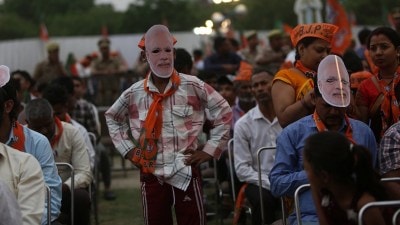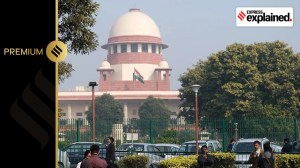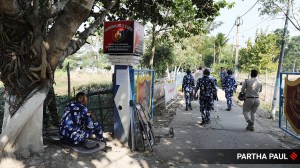- India
- International
Promoters garner Rs 20K cr via IPOs,public gets Rs 20 cr
Its called initial public offer,but it was promoters who walked away with a lions share in this market during 2009,when they sold shares worth about Rs 20,000 crore in their companies to the public shareholders....
Its called initial public offer,but it was promoters who walked away with a lions share in this market during 2009,when they sold shares worth about Rs 20,000 crore in their companies to the public shareholders.
Although the amount raised by promoters was also not as big as that in past few years,those who purchased the shares offered in about 20 IPOs this year are sitting on a meagre cumulative gain of about Rs 20 crore measured in terms of change in the value of shares from the time of allotment in IPO to their current market prices. No surprise that many names were given to IPO as the year passed,the popular ones include ‘Initial Promoter Offer’,’Idiotic Pricing Offer’ and even ‘It’s Probably Overpriced.’
Besides,the small and retail investors mostly kept away from the IPO market amid growing perception that corporates in connivance with merchant bankers are overpricing the offers in their lust for big money. As a result,shares of nearly half the companies that came out with IPO this year are currently trading below their public offer prices,resulting into losses for those who purchased shares.
The gains are marginal for some and only a few of them such as little-known Edserv Softsystems and Thinksoft have given good returns to the investors.
Shares of a few known names like Mahindra Holiday Resorts and Cox and King India as also public sector company Oil India Ltd are also now trading above their IPO prices,but this is after a recent rally on the bourses and they did not have any great listings. Those trading below their IPO prices include Excel Infoway,Adani Power,NHPC,Globus Spirits,Pipavav Shipyard,Euro Multivision,Indiabulls Power and Den Networks.

“The overpricing is leaving very little on the table for investors,” said Spice group’s financial services business head Sudip Bandyopadhyay,who till recently was CEO of Anil Ambani group brokerage firm Reliance Money.
He is not alone in cautioning against the dangerous trend with noted market analyst Arun Kejriwal saying that IPO pricing continues to remain aggressive and “merchant bankers are using innovative methods and asking investors to look at the issues differently,as they are more concerned about increasing their commissions.” The fear is borne out of the fact that in the year gone by,companies be private or state-run entities mopped up over Rs 20,000 crore through 21 issues,but shares of most of these companies are now trading below the offer price.
Against this,the year 2008 saw 30 IPOs mopping up Rs 17,000 crore,but shares of many these companies gave the investors modest-to-good returns. The experience was even better in 2007,when about 100 of them raised over Rs 32,000 crore and showered the investors with impressive returns. Analysts are also worried about retail investors sentiment taking a hit at a time when a number of PSUs,as also private sector firms,are lining up with offers. They believe the IPOs in 2009 received good response from investors but the returns are nothing great and the retail investors have kept themselves from the primary market. “Merchant bankers are basically acting hand-in-hand with promoters and going for aggressive pricing. Going forward,unless pricing is made realistic,people will stay away from IPOs,” Kejriwal Research and Investment Services Director Arun Kejriwal said.
Asked if the IPOs are being priced higher as companies and merchant bankers hold on to the mindset of 2007,Anil Ambani group financial services arm Reliance Capital CEO Sam Ghosh said:”It could be so. The sentiments of retail investors have to be raised. The pricing of coming IPOs would have to be much more realistic.”
“There was good response to the IPOs but it is still far from revival. Retail participation was considerably low and a volatile secondary market made investors stay away from putting money,” Prime Database MD Prithvi Haldea said.
Apr 25: Latest News
- 01
- 02
- 03
- 04
- 05







































